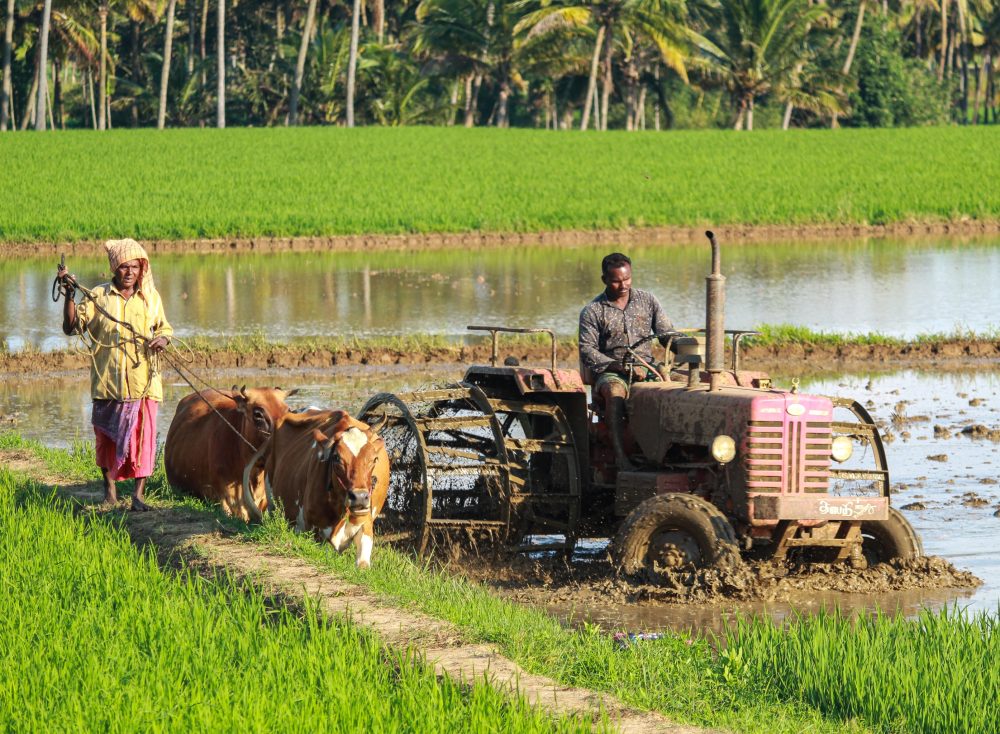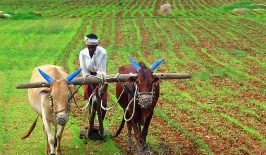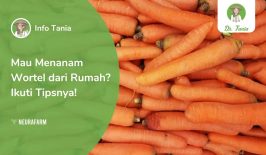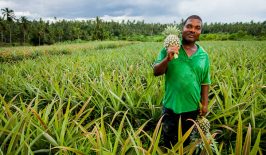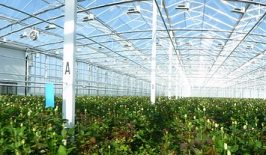Although climate change affects us all, it is often poorer global communities which disportionately suffer – especially in regards to the amount of pollution they cause. This is especially true for smallholder and subsistence farmers in the Global South. These small-scale, often family owned, farms are essential for hundreds of millions of individuals, who rely on them for food and income. However, severe weather, fluctuating temperatures and the socio-economic impacts that result are greatly increasing their risks.
To combat this, insurance company Pula has developed bespoke insurance schemes in order to protect vulnerable smallholder farmers from future environmental uncertainty. Through their policies, they hope to fortify the positions of family farmers in their communities, as well as better prepare them for future challenges.
Pula develops varying policies which cover both crops and livestocks. For example, its Yield Index Insurance (YII) covers the majority of threats which can affect agricultural yield. Each country is divided up into agro-ecological zones (AEZs) based on factors such as historical rainfall, temperatures and prior yields. Each year, trained enumerators measure yields in each zone to establish an average. If a smallholder’s yield falls below a predetermined trigger amount, they are eligible to receive payments to support them. Similarly, a hybrid insurance scheme can also be purchased, which includes insurance protection against weather damage.
The various schemes are backed up and supported by three products developed in conjunction with local governments and NGOs: Fieldsense Monitor, Fieldsense Advise and Fieldsense Engage. Monitor involves Pula and its partners using remote sensing technology and satellite imagery to provide a live dashboard providing data on changes in conditions – such as weather. Through its Advise programme, it spreads information to local communities on how to safeguard their income, develop new practices and mitigate the effects of climate change. The Engage element sees Pula conversing with farmers and educating them about insurance schemes and how it can benefit them.
Indeed, persuading farmers to invest in insurance is not in itself an easy task. With funds limited, farmers may be more concerned with using their money to purchase immediate and tangible products and services, rather than insurance. However, according to Pula, such insurance is vital to provide a safety net that is becoming ever more important as climate change progresses.
According to a 2017 paper, around 80 percent of all farms fall into the smallholder category, although they only operate on around 12 percent of available agricultural land. Generally, these farms are also predominantly located in the Global South, especially in Africa and Latin America. Their small scale, lack of support and remote location means smallholder farms are frequently identified as highly vulnerable to climate change. According to research, crop yields from smallholder farmers are expected to decrease 10 percent by 2055, although this average hides huge fluctuations. Particularly vulnerabile are rain-fed systems which depend on predictable and manageable rainfall. Climate change exacerbated droughts and storms have the potential to ruin farmers in a single season. Theoretically, insurance such as that provided by Pula would cover their living costs and provide funds for repairing and re-sowing seeds.
The health and stability of small-scale agriculture also has the potential to cause beneficial knock on effects elsewhere. The decrease in agricultural productivity is also seen as important factors in rapid urbanisation seen in regions such as Sub-Saharan Africa. In 2010, only around 36 percent lived in built-up cities and towns. That number is expected to increase to 50 percent by 2030. Often this urban migration is to only a handful of cities with industrial and manufacturing capacity, increasing overcrowding that also results in a wide range of social, health and security issues.
According to Pula, they have now insured 4.5 million farmers across Africa, covering around 1.6 million hectares of land. Around 70,000 of its customers have received payouts, with farmers investing the money in a range of different ways to ensure the wellbeing and livelihoods of their families. In the example of Kenya for example, 70 percent invested the money into new livestock to diversify their farms, while around 80 percent used insurance payouts for food, and 80 percent for school fees. Overall, Pula’s statistics suggest insured families in Kenya can see their household savings increase by as much as 127 percent, allowing them to more comfortably take out credit for farm and household improvements.
In the future, Pula is also branching out into new areas. Its weather monitoring and predicting technology could be valuable to the renewable energy sector, whose income is also highly dependent on environmental factors.
